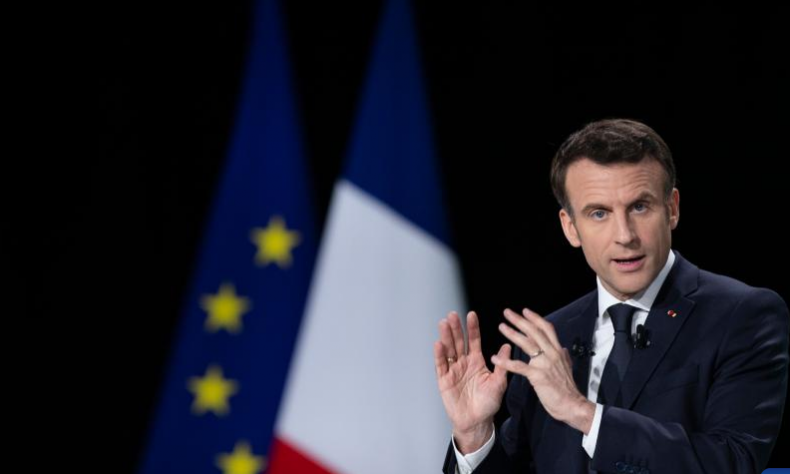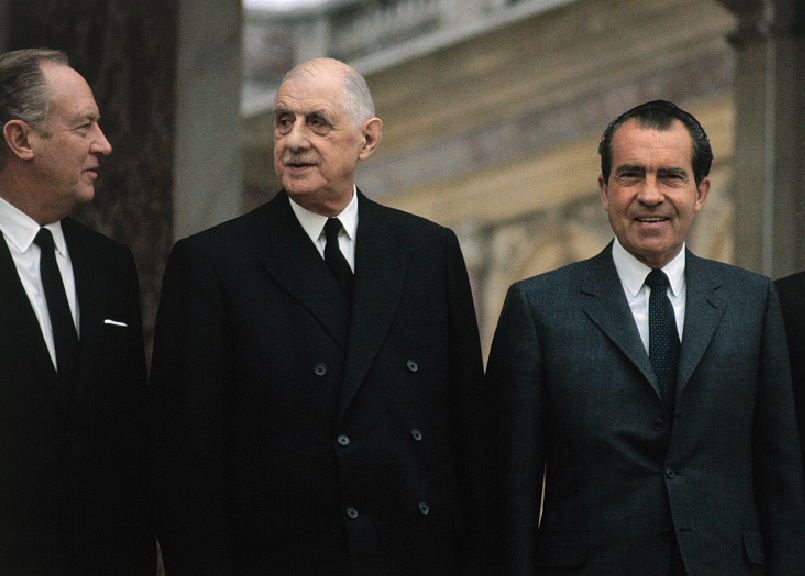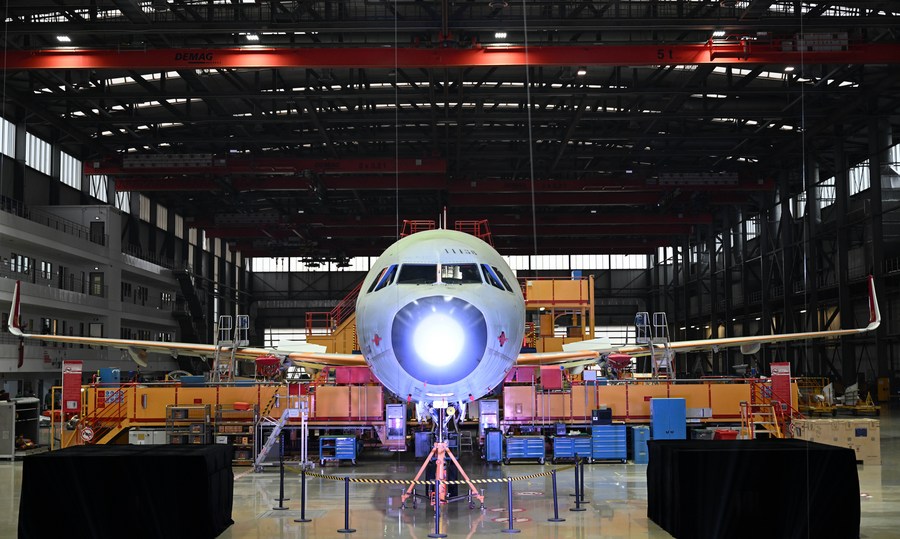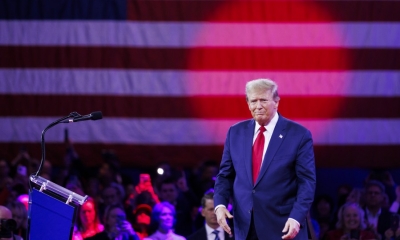Macron in China but Hysteria in West

There has been a trend developing in Europe which involves a cleavage between hardline pro-Washington Atlanticists and European pragmatists.
French President Emmanuel Macron’ successful state visit to China stabilizes and strengthens the longstanding China-France relationship. The president also calls for European “strategic autonomy” in an interview after the visit. But Washington and Brussels are in a tizzy. While Paris shows pragmatic realism, the United States and its European vassals border on the hysterical.
Multipolarity and echoes of General DeGaulle
World War II hero, General Charles DeGaulle, was president of France (1959-1969) and is well known for his independent foreign policy. DeGaulle famously withdrew France from the North Atlantic Treaty Organization (NATO) owing to its domination by the United States. Under DeGaulle, France did not want to become a vassal of the United States and Wall Street.
DeGaulle was also well known for advocating that a united Europe from the “Atlantic to the Urals” should act as an independent power in the world. His pragmatic vision was for a loosely confederated “Europe of Nations” in contrast to those who advocated a tightly organized European superstate governed by a faceless “Atlanticist” bureaucracy under U.S. influence.
DeGaulle granted diplomatic recognition to Beijing in 1964 to the consternation of Washington. DeGaulle was looking far ahead not unlike U.S. President Richard Nixon in his own opening to China a decade later. In fact, Nixon admired DeGaulle. Today, the French stand by their long term China policy while the U.S. has all but reversed the Nixon policy.
Macron’s China visit certainly has evoked shrieks from the “Atlanticists” in the U.S. and in Europe. He echoed DeGaulle in calling for a united Europe that should act independently of Washington focusing on its own interests rather than the interests of Wall Street and the U.S. military-industrial complex.

As a graduate student in International Relations during the 1970s, I well remember Nixon’s China opening and how positive the reaction of the American people was. My parents welcomed the Nixon policy and hoped for positive relations with an ancient civilization and New China. Nixon’s realism and vision no doubt owed something to his being a Californian on the Pacific Coast looking west across the Pacific, to this military service in World War II in the Pacific, and to Henry Kissinger, his astute advisor.
In the late 1960s, Kissinger wrote about the “Troubled Partnership” between the U.S. and Europe. He realistically foresaw the eventual emergence of a multipolar world. In the early stage, it would be the U.S., Europe, Russia, China, and Japan as the major powers. Of course, by today we have seen a further evolution with the rise of significant medium powers and organizations. How can any serious U.S. politician or academic be surprised?
The present multipolar trend now is being led by China and Russia. The Global South, also called the “Global Majority”, is embracing this new constructive international leadership and forsaking Washington’s obsolete Cold War posturing, aggression, and wars.
France in a changing world
President Xi Jinping, during his recent state visit to Russia, observed that the world is seeing major changes that it has not seen in a century. President Vladimir Putin said that he agreed with the geopolitical assessment of the Chinese leader and that their joint effort to promote stability, peace, and development was showing results.
As President Xi said, the world is clearly changing and the international system presently is undergoing a transformation to multipolarity. Russian diplomacy also emphasizes multipolarity which Moscow often refers to as “polycentrism”. Whatever the terms used, clearly the international system is becoming more pluralist. The rise of Asia and the more independent streaks in the Middle East, Africa, and Latin America signal tectonic shifts in the international system.
This shift is away from the former U.S. dominated “unipolar” system. Chinese diplomacy has led the way in dramatic breakthroughs in the Middle East by helping Saudi Arabia and Iran to compose their differences and to establish a new relationship. In turn, this has led to a process of ending the tragic war in Yemen. New economic relations are developing and use of local currencies, as well as the Chinese yuan, for international settlement is already in motion.
The Gulf States are involved in this new constructive round of diplomacy. Hopefully, this will help to stabilize the region and lead to peace and economic development. Washington’s policy of divide and rule and outright war is losing ground as the people of the region, as well as the people of Africa and Latin America, reject U.S. leadership and aggressive militarism. Not unlike many in Europe, the people of the Middle East want to move beyond the days of U.S. unilateralism, unipolarity, and diktat. However, they fear that once again Washington will provoke instability and regional violence.

France takes pragmatic approach
As under President DeGaulle, President Macron demonstrates that he stands for an independent policy for France and also for Europe. Given his political difficulties at home, an appeal to Gaullist sentiment in France is timely and constructive but also it is in the long range French national interest. Macron is strengthening France’s position as a European leader at a time when Germany is faltering and suffers from severe political, social, and economic problems.
Perhaps the most important aspect of the Macron state visit is that he brought with him a top-level delegation of over 50 French business leaders. Macron very ably is seeking new opportunities for French business and commerce. His timing is excellent on this score. Many billions of dollars of trade and investment are in the works as a result.
Macron has been consistent in his support of what he calls “strategic autonomy”. As a nuclear power, France has special responsibilities. France does not want to be dragged into a war over the Chinese island of Taiwan. Macron made this very clear in China and in his press interviews and statements. Europe should not be pulled into America’s folly in the Asia-Pacific, he said. France has its own interests in the region.
Of course, in the wake of his visit, hysteria mounted in Europe and in the United States. Atlanticist circles representing the transatlantic oligarchy and its NATO war machine expressed deep anxiety.
However, there has been a trend developing in Europe which involves a cleavage between hardline pro-Washington Atlanticists and European pragmatists. Although this has been inevitable for decades as DeGaulle demonstrated, today in light of the changing international system and multipolarity it is more pronounced.
Thus, Macron’s call for “strategic autonomy” for Europe is resonating. The massive demonstrations across Europe involving hundreds of thousands of anti-Ukraine war protesters signal a shift in public opinion as well as in mood. The younger generation of Europeans is desirous of peace. A Europe wide economic downturn if not crisis threatens social and political stability. Ending European vassalage to Washington and Wall Street is on the minds of not a few.
China-France relations point to future
The successful Macron state visit underscores not only France’s important international role but also China’s desire to stabilize and strengthen not only bilateral relations but also relations with the European Union. The Chinese leadership takes a realistic view of the changing international situation and wisely seeks constructive cooperation with willing partners who welcome mutually advantageous opportunities.
The United States, which for now many believe is in decline, must change course radically from the dead end into which it has placed itself. Appallingly incompetent leadership, especially under Presidents George W. Bush, Donald Trump, and Joe Biden, undermines long range American national interests. The U.S. with its unrelenting aggressive militarism, endless wars, and bullying foreign policy is out of step in a world looking for peace and for new constructive leadership. Washington must change its policies fundamentally or America will become unwanted, alone, and isolated. An “agonizing reappraisal” of American foreign policy is clearly a necessity today.
The article reflects the author’s opinions, and not necessarily the views of China Focus.
 Facebook
Facebook
 Twitter
Twitter
 Linkedin
Linkedin
 Google +
Google +







